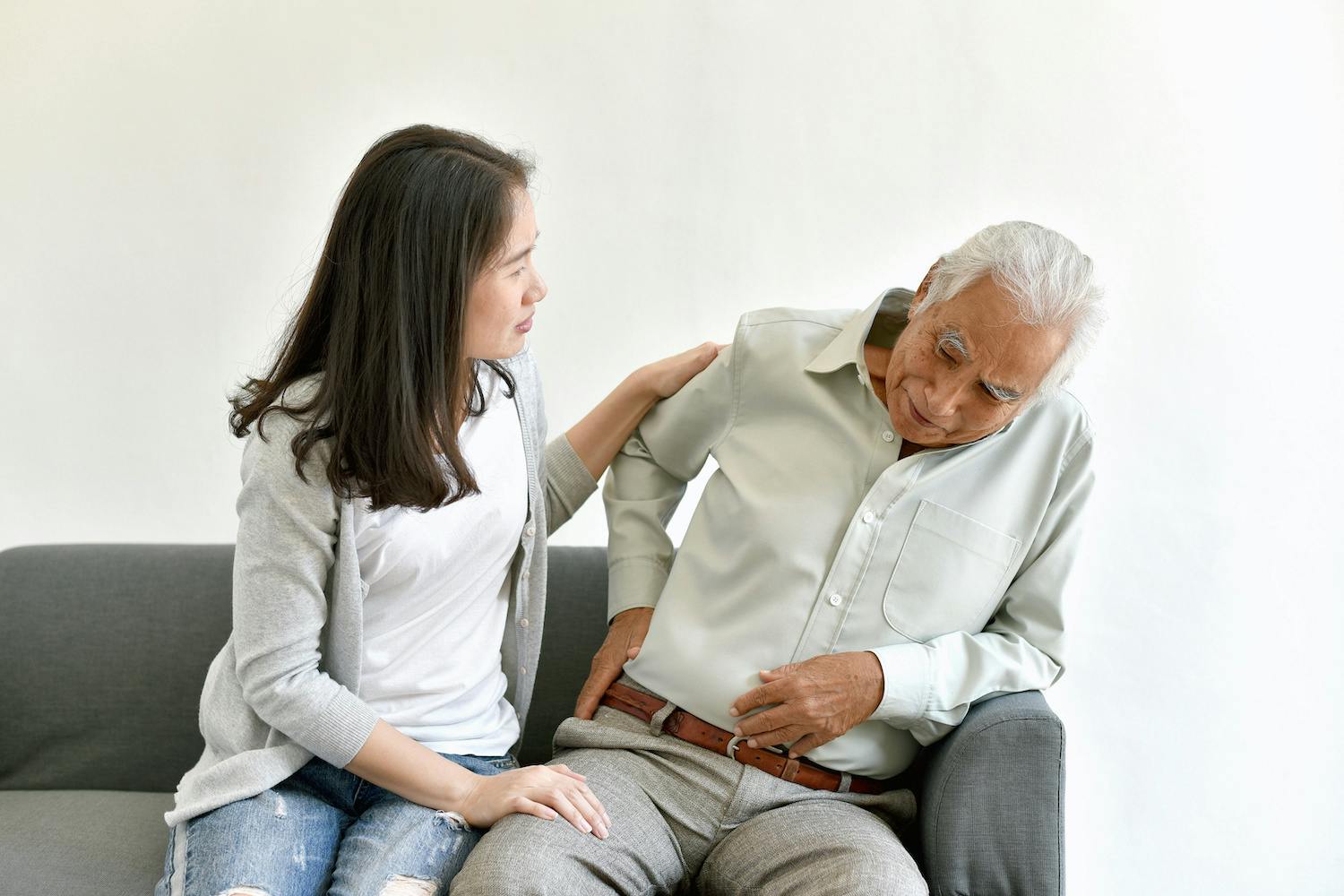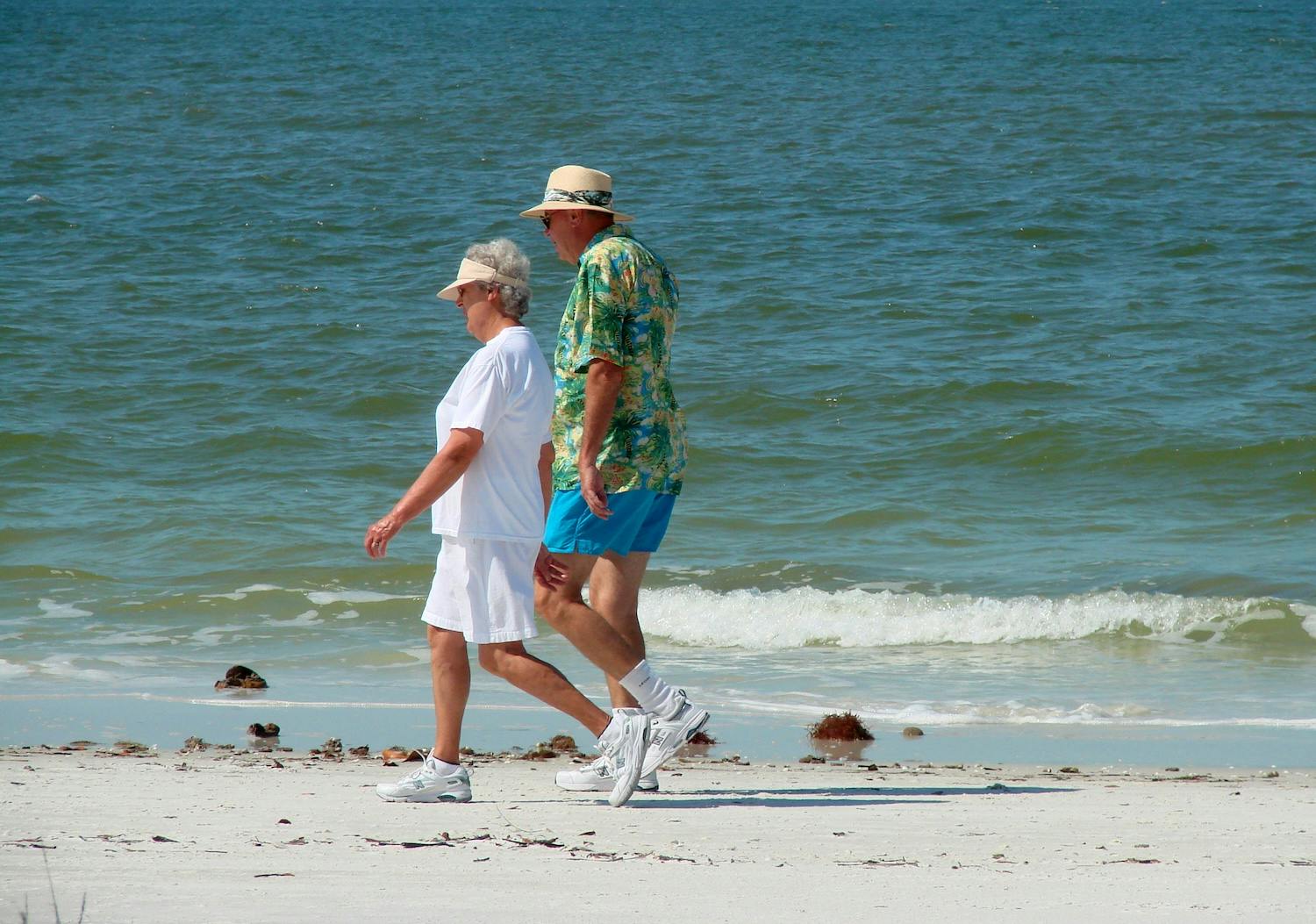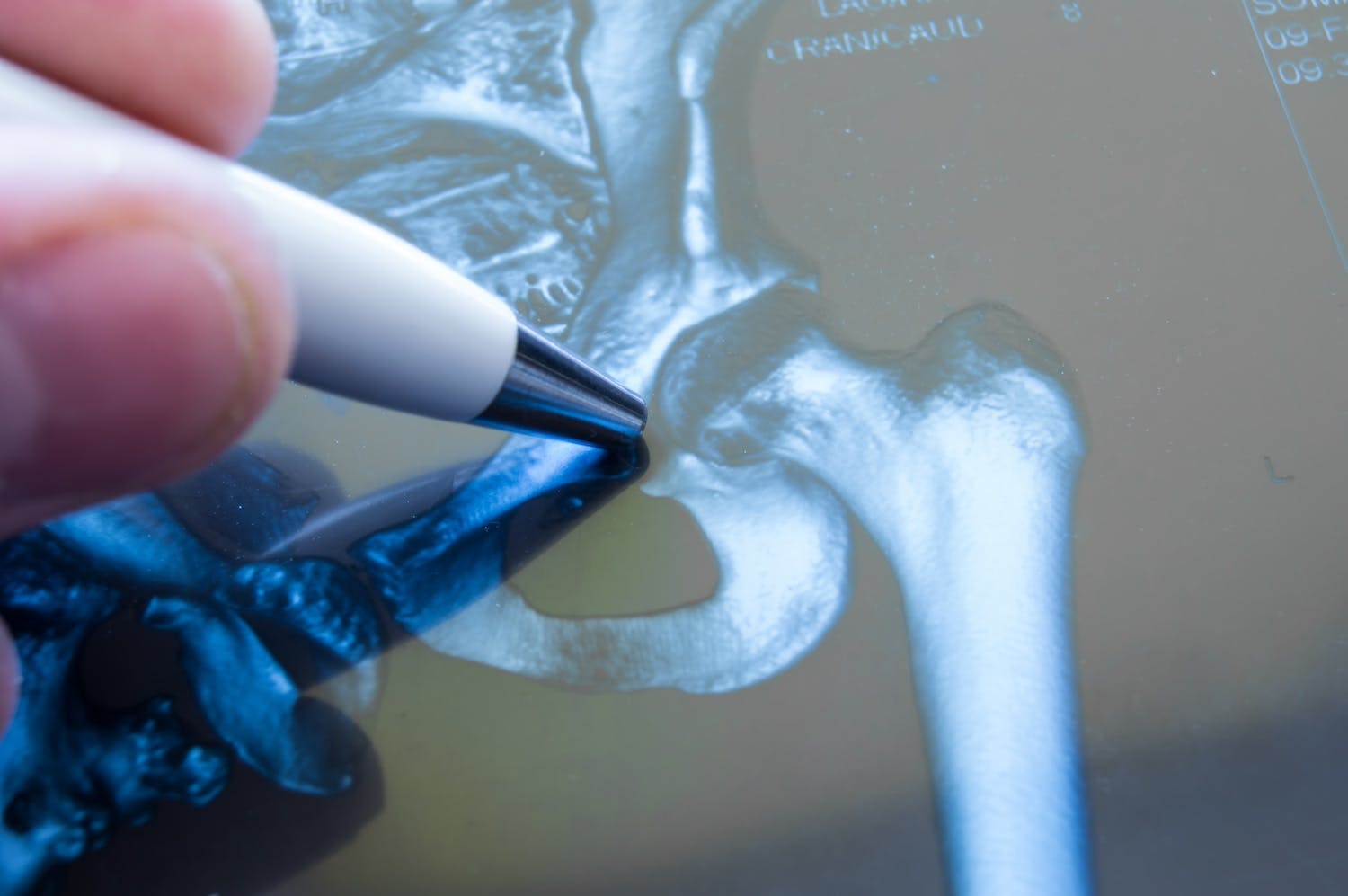- Blog
Types of Hip Arthritis
Posted on 01-28-2026 in Hip, Arthritis & Hip Arthritis by Dr. Matthew Mai

Posted on 01-28-2026 in Hip, Arthritis & Hip Arthritis by Dr. Matthew Mai
As we continue recognizing National Arthritis Awareness Month, our latest article explores what you should know about hip arthritis, including the most common types and symptoms.
Arthritis develops when the cartilage responsible for covering and protecting the bones of a joint degenerates, causing friction between the bones. As a ball-and-socket joint and one of the largest joints in the body, the hip is particularly prone to arthritis, given the significance of its weight-bearing function.
Osteoarthritis of the Hip
The most common type of arthritis affecting the hip is osteoarthritis (OA), sometimes called "wear and tear" or degenerative arthritis. Those suffering from OA often struggle with everyday tasks like bending over to tie a shoe, rising from a chair or taking a short walk. Several risk factors, including a family history of osteoarthritis, previous hip joint injury, obesity, improper hip joint formation at birth or aging, can worsen this type of arthritis. OA typically affects middle-aged patients.
The most common symptom associated with osteoarthritis is hip pain that develops slowly and worsens over time, although sudden onset is also possible. The pain can be accompanied by stiffness, which may be worse in the morning, or after extended periods of sitting or resting. As the condition progresses, these symptoms may occur with greater frequency impacting the ability to sleep comfortably. OA patients may also experience the following symptoms:
Inflammatory Arthritis of the Hip
Inflammatory arthritis is caused by an overactive immune system. These types of arthritis are categorized as autoimmune disorders and can affect the joints and other organs. The most common types of inflammatory arthritis that cause symptoms in the hip include Rheumatoid arthritis, Ankylosing spondylitis and Psoriatic arthritis. Even though gout and pseudogout are not autoimmune in nature, they can also cause symptoms in the hip joint. Unlike osteoarthritis, inflammatory arthritis affects people of all ages, often showing signs in early adulthood.
Inflammatory arthritis will cause patients to feel pain and stiffness in the hip. However, they may also experience general symptoms throughout the body, such as fever, loss of appetite and fatigue. Additional symptoms may also include:
If you are experiencing symptoms of hip arthritis, Dr. Matthew Mai is available for consultation to diagnose your condition and provide the best possible treatment options. Please contact our office at 850-916-3700 or complete our online Appointment Request form to schedule a visit with Dr. Mai.
Are you looking for other arthritis-related topics? If so, check out our additional blog posts on Causes & Symptoms of Hand Arthritis, What You Should Know About Wrist Arthritis, Treatment Options for Thumb Arthritis, Diagnosing & Managing Arthritis, Arthritis Treatments, Arthritis & Hyaluronic Acid, Treating Ankle Arthritis and Symptoms of Ankle Arthritis.

September is Healthy Aging Month, an observance dedicated to promoting the positive aspects of growing older and encouraging proactive steps toward maintaining long-term health. In its 33rd year, Healthy Aging Month inspires adults of all ages to focus on lifestyle habits that support vitality, independence and overall well-being.

Ischiofemoral Impingement (IFI) is a lesser-known but often painful condition affecting the hip joint. This condition arises when the ischium (a bone in the pelvis) and the femur (the thigh bone) come into abnormal contact, which compresses soft tissues surrounding the hip. While the discomfort typically manifests in the buttocks or groin, particularly when moving the hip or walking, it can also present as low back pain, making it challenging to diagnose early. Additional symptoms and causes include discomfort during prolonged sitting, reduced range of motion, stiffness and/or tightness in the hip area.

May is Arthritis Awareness Month, an opportunity to increase public understanding of arthritis and its impact on millions of lives. Established by the Arthritis Foundation, this national observance highlights the importance of early diagnosis, effective treatment, and ongoing research to improve the quality of life for those with arthritis.